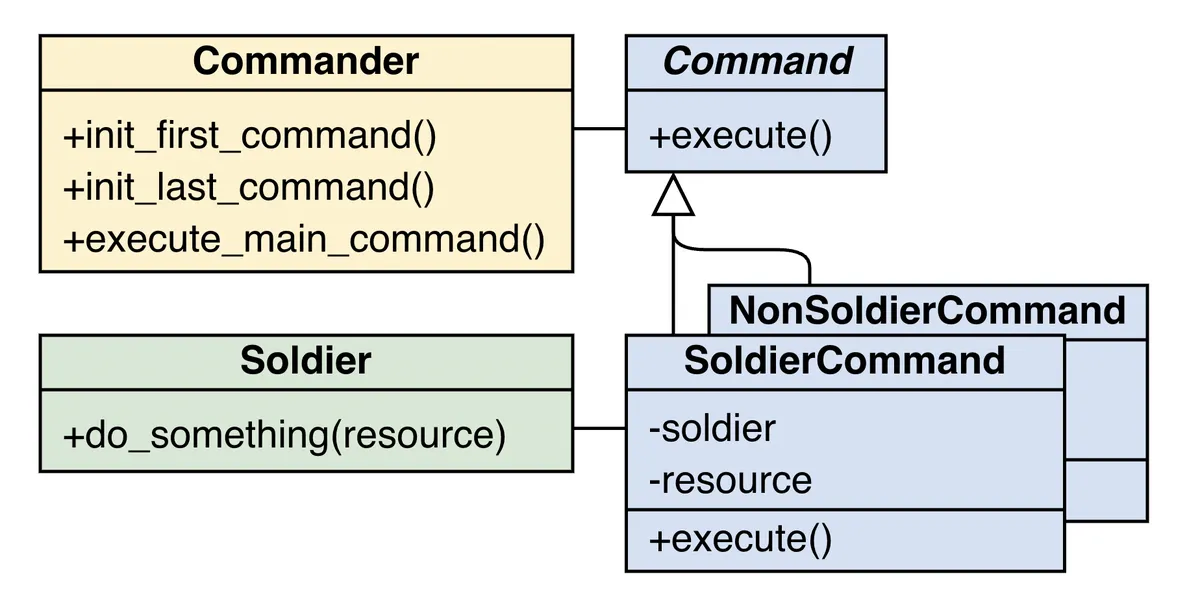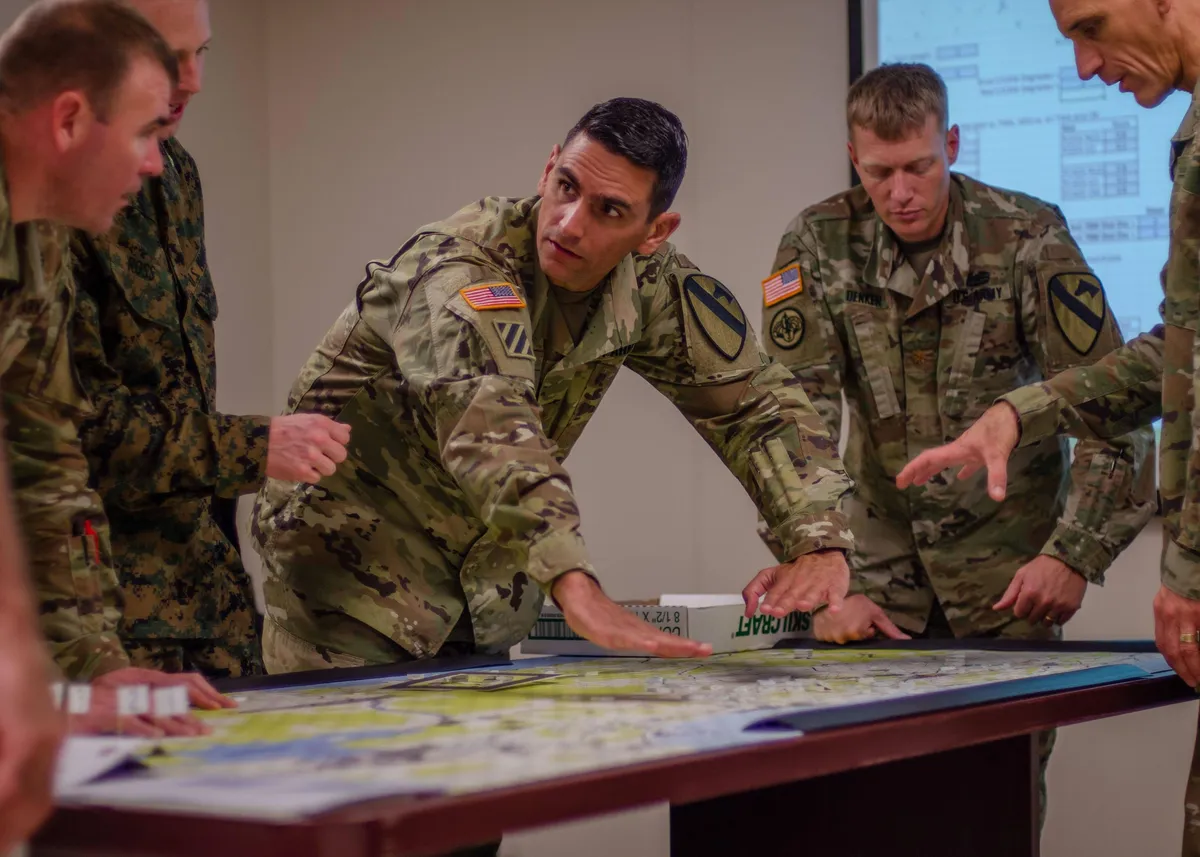Command is a behavioral design pattern:
🖤🖤🖤🖤🤍
What is Command?
Command is a technique that object commander is used to encapsulate needed information resource, soldier to execute the task at a later time.

Why use Command?
- Its layout is easy to understand and has good extensibility when more logic comes later.
Question: I hate the Command, what are the alternatives?
Answer: Just code as normal and ignore this pattern, everything in Python is an object, so you can store any object and execute a callback easily.

When to use Command?
Question: When do I use Command?
Answer: When you have a lot of tasks, it is necessary to store and plan for them. Then (maybe after a delay) execute them as planned.
- Having resources(
Resource for the First Task, Resource for the Main Task, Resource for the Last Task), - Having tasks in order
first_task(NonSoldierCommand.execute), main_task , last_task(SoldierCommand.execute):
Expected Output:
- Resources are appropriately allocated to task, tasks are properly planned first, then it will be executed once the command is activated.
1
2
3
4
5
6
7
| Commander: the first task is:
💣NonSoldierCommand.executing: (Resource for the First Task)
Commander: the main task is:
🧨Commander.executing: (Resource for the Main Task)
Commander: the last task is:
💣SoldierCommand.executing: (<class '__main__.Soldier'>, Resource for the Last Task)
Soldier.do_something with: (Resource for the Last Task)
|
How to implement Command?
Non-Command implementation:
1
2
3
4
5
6
7
8
9
10
11
12
13
14
15
16
17
18
19
20
21
22
23
24
25
| def non_soldier_command_execute(payload):
print(f" 💣NonSoldierCommand.executing: ({payload})")
def soldier_command_execute(soldier, resource):
print(f" 💣SoldierCommand.executing: ({type(soldier)}, {resource})")
soldier.do_something(resource)
class Soldier:
def do_something(self, resource):
print(f" Soldier.do_something with: ({resource})")
if __name__ == "__main__":
# no planning here, just do everything at once
print("Commander: the first task is:")
non_soldier_command_execute("Resource for the First Task")
print("Commander: the main task is:")
print(f" 🧨Commander.executing: (Resource for the Main Task)")
print("Commander: the last task is:")
soldier = Soldier()
soldier_command_execute(soldier, "Resource for the Last Task")
|
Command Implementation:
1
2
3
4
5
6
7
8
9
10
11
12
13
14
15
16
17
18
19
20
21
22
23
24
25
26
27
28
29
30
31
32
33
34
35
36
37
38
39
40
41
42
43
44
45
46
47
48
49
50
51
52
53
54
55
56
57
58
59
60
61
62
63
64
65
66
67
68
69
| from abc import ABC, abstractmethod
class Command(ABC):
@abstractmethod
def execute(self):
pass
class NonSoldierCommand(Command):
def __init__(self, payload):
self._payload = payload
def execute(self):
print(f" 💣NonSoldierCommand.executing: ({self._payload})")
class SoldierCommand(Command):
def __init__(self, soldier, resource):
self._soldier = soldier
self._resource = resource
def execute(self):
print(f" 💣SoldierCommand.executing: ({type(self._soldier)}, {self._resource})")
self._soldier.do_something(self._resource)
class Soldier:
def do_something(self, resource):
print(f" Soldier.do_something with: ({resource})")
class Commander:
_first_task = None
_last_task = None
def init_first_command(self, command):
self._first_task = command
def init_last_command(self, command):
self._last_task = command
def execute_main_command(self):
print("Commander: the first task is:")
if isinstance(self._first_task, Command):
self._first_task.execute()
print("Commander: the main task is:")
print(f" 🧨Commander.executing: (Resource for the Main Task)")
print("Commander: the last task is:")
if isinstance(self._last_task, Command):
self._last_task.execute()
if __name__ == "__main__":
commander = Commander()
# commander init: a command encapsulating needed information(resource) to execute the task at a later time.
non_soldier_command = NonSoldierCommand("Resource for the First Task")
commander.init_first_command(non_soldier_command)
# commander init: a command encapsulating needed information(soldier, resource) to execute the task at a later time.
soldier = Soldier()
soldier_command = SoldierCommand(soldier, "Resource for the Last Task")
commander.init_last_command(soldier_command)
# after planning, this is the later time, time to execute the tasks initiated by the commander
commander.execute_main_command()
|
Source Code


